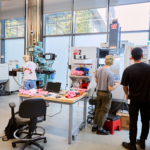- South Korea plans AI textbooks in schools.
- Parents worry about screen time effects.
- The government must balance tech innovation and student well-being.
Digital Dilemma in the Classroom
South Korea’s ambitious plan to introduce AI-powered tablets in schools next year faces growing skepticism from parents.
The government aims to implement these digital textbooks across most subjects by 2028, promising customized learning experiences and enhanced teacher monitoring capabilities.
This initiative excludes music, art, physical education, and ethics, which will retain traditional teaching methods.

The rollout represents a significant shift in the country’s educational approach, potentially positioning South Korea at the forefront of AI-driven learning.
Parents Sound the Alarm
Over 50,000 concerned parents have signed a petition urging the government to prioritize students’ overall well-being over technological advancements.
They express worries about excessive screen time and its potential impact on children’s development, concentration, and problem-solving skills.
The controversy highlights the challenge of integrating cutting-edge technology into education without compromising students’ health and traditional learning methods.

The government now faces the task of addressing parental concerns without derailing its modernization efforts in the classroom.
The debate also raises questions about the role of AI in shaping future generations’ learning experiences and the need for guidelines to ensure responsible use of technology in education.









